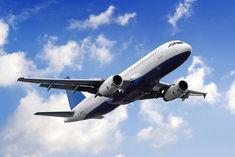
A government report on sustainability has backed the fresh produce airfreight business, recognising its minimal carbon footprint and importance in fighting poverty.
The House of Commons’ International Development Committee has published recommendations to the UK government in its report, Sustainable Development in a Changing Climate. Around 60 per cent of fruit and vegetables are imported into the UK, providing produce outside the UK season, as well as varieties that simply cannot be grown in the UK.
Malcolm Bruce, chairman of the International Development Committee, said: “There is a danger that steps taken by consumers in the UK to reduce their contribution to carbon emissions may lead them to avoid buying produce from developing countries, in the belief that airfreighted food and flowers necessarily have a higher carbon footprint. This is not true. We saw for ourselves the sophisticated and efficient techniques used to grow flowers in Kenya.
“The carbon emissions from Kenyan flowers flown to the UK are nearly six times lower than those from Dutch flowers grown in heated greenhouses. Consumers need accurate information about the way products have been grown, as well as transported, so that they can make informed choices.”
Nigel Jenney, chief executive of the Fresh Produce Consortium (FPC), which contributed evidence to the report, said: “There is no evidence that fewer aircraft would fly if consumption of imported fruit and vegetables were reduced. At least 60 per cent of airfreighted fresh produce is brought to the UK in the bellyhold of passenger aircraft.
“There are massive variations between the carbon footprint of Africa (one to two tonnes of carbon per head) and that of the UK (11-14t per head) and the US (22t per head).
“We must put ill-founded concerns about the impact of transportation of fresh produce from developing countries in their proper perspective, and balance them against the need to address rising obesity levels and poor diets across Europe, as well as assist the development of local economies in Africa.”
Simon Derrick, communications manager at Blue Skies, an exporter that relies heavily on airfreight, told FPJ: “I think the debate needs to be balanced fairly so that the positive impacts of airfreight are taken into account. Yes, there are negative environmental impacts that need to be addressed and we are members of [pro-aviation coalition] FlyingMatters, so that we can ensure that the aviation industry is taking the right steps.
“It is impossible to sum up the sustainability of a product with just an airfreight label. It is right that consumers have access to this kind of information, but the positive connotations of it being fresh have been overtaken with talk of emissions. We support the Overseas Development Institute, which is working on a new Good for Development label based on the UN’s millennium development goals. We feel that this better reflects the sustainability of a product.”
The report is timely, as the UK government is setting out its proposals for debate on reaching a global agreement on how to tackle climate change - The Road to Copenhagen - in the lead-up to the UN’s conference in December.
Among the recommendations by the International Development Committee to the UK government are the provision of accurate information about the way products have been grown, as well as transported; research on how such a scheme might be introduced; and an assessment of the potential benefits to producers in developing countries.
The FPC has indicated that it intends to press the government to consider the committee’s recommendation that it should consider paying to offset the airfreight emissions of horticultural produce imported from developing countries.



